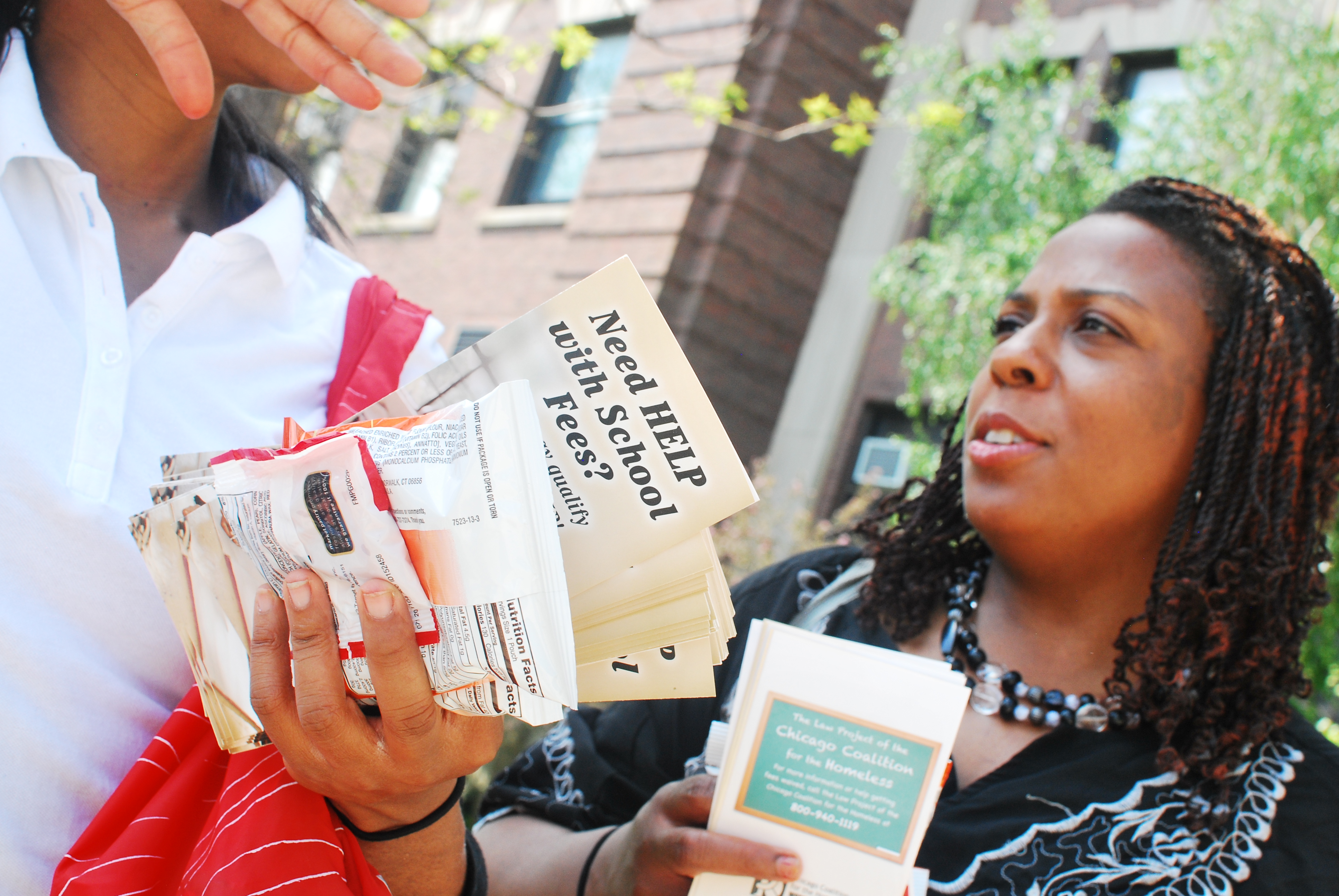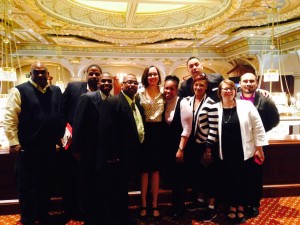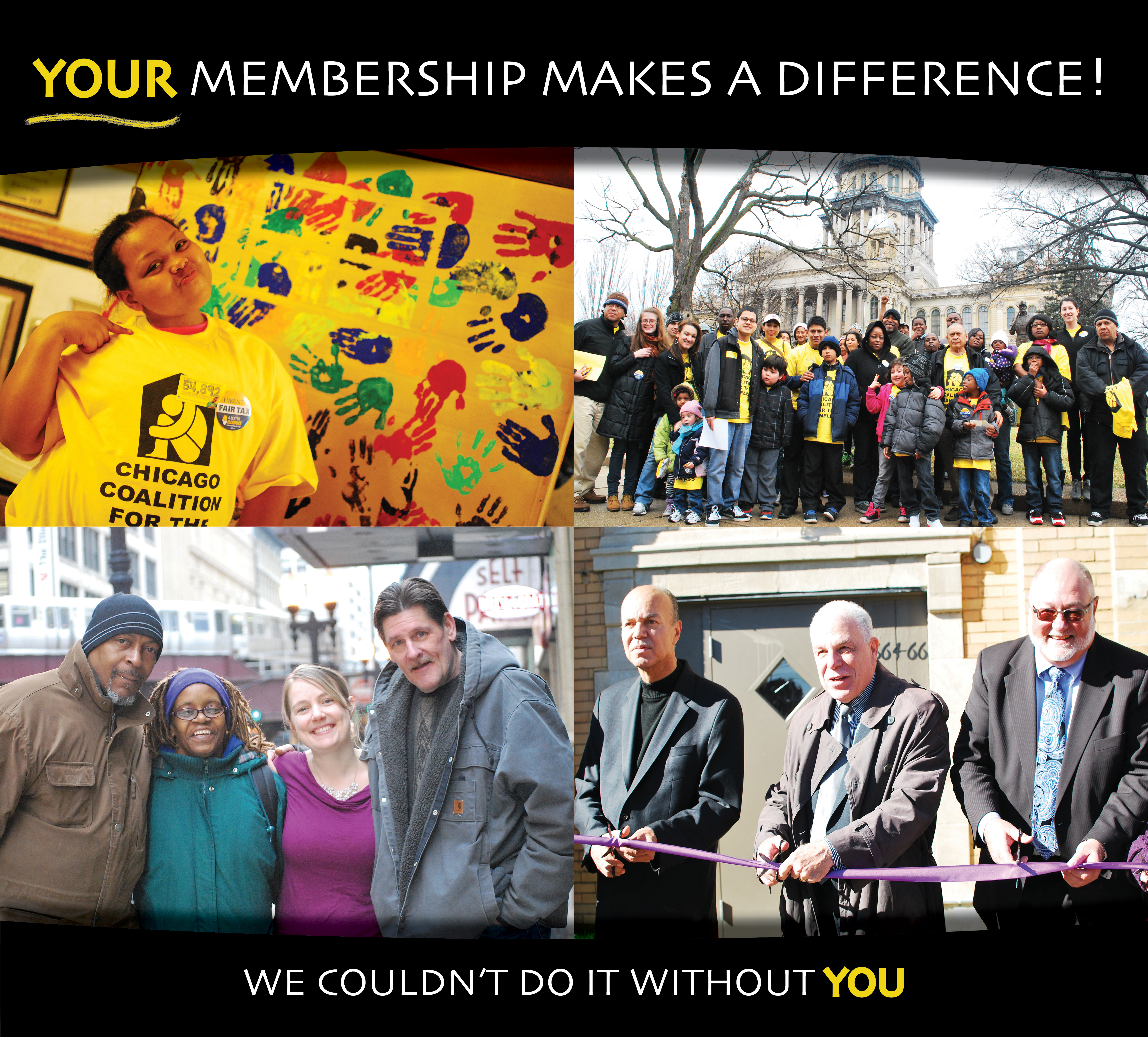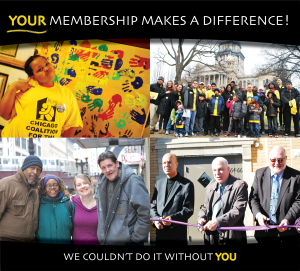Editor’s Note: Chicago Coalition for the Homeless works in the Responsible Budget Coalition, a 200-member organization co-led with groups that include Voices for Illinois Children and the Sargent Shriver National Center on Poverty Law. This statement was issued April 8.
On Good Friday, April 3, pursuant to an executive order by Gov. Bruce Rauner, the Illinois Department of Human Services immediately terminated all contracts for services delivered by 22 state programs that serve thousands of Illinoisans.
The Responsible Budget Coalition responded Monday to these harmful service eliminations.
Today, service providers respond to these grant suspensions by detailing how individuals and communities are impacted. As detailed below, thousands of people will lose access to specific services and these service eliminations will impact not only individuals but also communities with potential job layoffs, service reductions, and closures.
The service provider contacts listed below are available to speak to the press about the impact of these immediate grant suspensions.
Teen REACH, $3.1 million
Contacts: Andi Durbin, Illinois Collaboration on Youth (ICOY), adurbin@icoyouth.org; Ann Pinkney, Metropolitan Family Services, pinkneya@metrofamily.org
“Teen REACH keeps young people safe, supports working families, and improves educational outcomes. Eliminating Teen REACH means nearly 15,000 Illinois youth are at risk of violence and dangerous behaviors, low-income working parents have no safe place for their kids after school, youth will lose crucial supports that help them achieve in school, and hundreds of people are out of work with no severance.”
“Teen Reach has helped numerous youth at Metropolitan Family Services develop academically and socially in settings that keep them safe. Eliminating program funding jeopardizes the well-being of youth we serve and many others throughout Chicago and Illinois.”
Immigrant Integration Services, $3.4 million
Contact: Breandán G. Magee, Illinois Coalition for Immigrant and Refugee Rights (ICIRR), bmagee@icirr.org
“Immigrants across Illinois lose access to assistance regarding U.S. citizenship, health care, nutrition, and other services that help them thrive and contribute to our economy and community. For someone who portrays himself as a smart businessman committed to our state’s economic recovery, Governor Rauner
page1image18616 page1image18776
seems oblivious to the five-fold returns that our state’s investment in immigrant communities create for our entire state.”
Addiction Prevention, $1.6 million
Compulsive Gambling, $406,000
Contact: Sara Howe, Illinois Alcoholism and Drug Dependence Association (IADDA), showe@iadda.org
Statewide Addiction Prevention Program:
“Illinois’ addiction prevention system delivers an array of evidence-based prevention strategies that are effective at preventing and delaying the onset of drug and alcohol use among Illinois youth. The system, which has lost nearly 90% of its state funding in the past 8 years, is the first line of defense in an escalating prescription drug and heroin crisis. The immediate suspension of more than $1.6 million in state funding means that more than 153,000 youth will not receive vital prevention services, thereby increasing their risk of alcoholism and addiction, and ultimately adding to the number of fatal and non- fatal overdoses occurring daily across the state.”
Gambling Intervention and Treatment:
“Funded primarily through gaming revenue, these dollars support a system of care designed for persons who are diagnosed with a pathological gambling disorder or a pathological gambling disorders and co- occurring substance use disorder. The National Council on Problem Gambling reports that one in five pathological gamblers attempts suicide, a rate higher than for any other addictive disorder. The immediate suspension of this appropriation would amount to more than 5,375 Illinois residents losing critical gambling treatment services.”
####
The Responsible Budget Coalition (RBC) is a large and diverse coalition of approximately 200 organizations concerned about state budget and tax issues. It includes organizations that serve children, families, veterans, seniors, people with disabilities and homeless people; education groups concerned about early learning, K-12 and higher education; labor unions; faith-based and civic organizations; and many others. The individual organizations that belong to the RBC represent a diverse range of interests but are united by these three common principles:
• Adequate revenue to support state priorities and make smart investments
• No more cuts to vital programs and services
• Fairness in raising revenue and making any cuts caused by failure to raise adequate revenue
RBC can be followed on Facebook, as well as on Twitter at @RespBudgetIL




